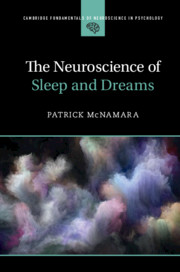Book contents
- Frontmatter
- Dedication
- Contents
- Figures
- Tables
- Preface
- Acknowledgments
- Part I Sleep
- Chapter 1 What Is Sleep?
- Chapter 2 From Biological Rhythms to the Sleep Cycle
- Chapter 3 Expression of Sleep across the Human Lifespan
- Chapter 4 Characteristics of REM and NREM Sleep
- Chapter 5 Sleep Disorders
- Chapter 6 Theories of REM and NREM Sleep
- Part II Dreams
- Appendix: Methods
- References
- Index
Chapter 4 - Characteristics of REM and NREM Sleep
from Part I - Sleep
Published online by Cambridge University Press: 15 February 2019
- Frontmatter
- Dedication
- Contents
- Figures
- Tables
- Preface
- Acknowledgments
- Part I Sleep
- Chapter 1 What Is Sleep?
- Chapter 2 From Biological Rhythms to the Sleep Cycle
- Chapter 3 Expression of Sleep across the Human Lifespan
- Chapter 4 Characteristics of REM and NREM Sleep
- Chapter 5 Sleep Disorders
- Chapter 6 Theories of REM and NREM Sleep
- Part II Dreams
- Appendix: Methods
- References
- Index
Summary
REM's biobehavioral characteristics are paradoxical in that its physiologic correlates appear to be injurious to the health of the organism while its brain correlates suggest social-emotional functions. Unlike REM, NREM biobehavioral characteristics are slightly less paradoxical but still enigmatic. NREM’s physiologic functions may be related to immune system function while its electrophysiologic properties are clearly related to the restorative functions of sleep. Both REM and NREM sleep likely participate in memory processing but so does the waking state. The fact that NREM appears to be associated with the gradual deactivation of a select group of brain structures that are then reactivated during REM suggests that the two sleep states either work in harmony with one another to maintain optimal brain function or that NREM undoes something that REM instantiates.
- Type
- Chapter
- Information
- The Neuroscience of Sleep and Dreams , pp. 60 - 77Publisher: Cambridge University PressPrint publication year: 2019

